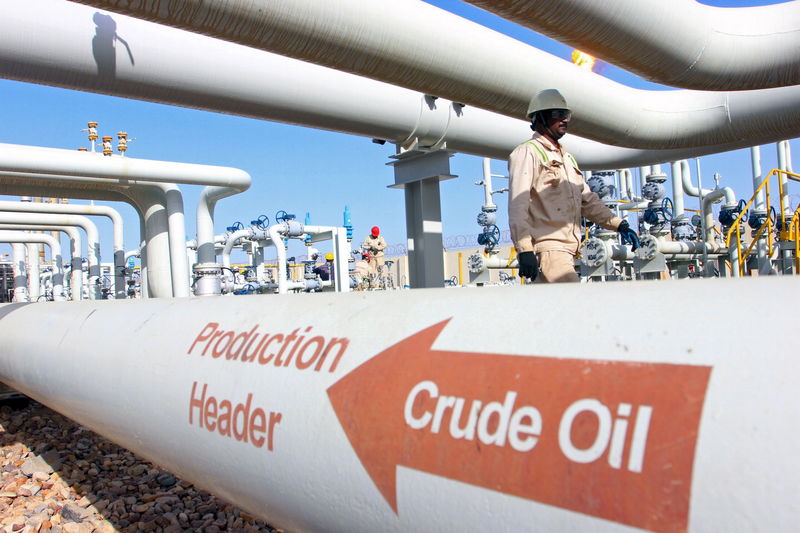By Geoffrey Smith
Investing.com -- Crude oil prices rose on Monday on a sustained burst of optimism that the distribution of vaccines to treat Covid-19 will enable a thorough recovery in oil demand next year.
By 10:45 AM ET (1545 GMT), U.S. crude futures were up 1.2% at $42.91 a barrel, having hit a two-month high overnight at $43.34 on the back of reports of an attack on a Saudi Arabian oil distribution center by Houthi rebels based in Yemen. The news briefly triggered memories of the much more disruptive attack last year on pipeline facilities at Abqaiq. However, the substance of Monday’s incident was hardly comparable.
Brent crude futures were up 1.6% at $45.81 a barrel, having come off an intraday high of $46.13, which was likewise a two month high.
U.S. gasoline RBOB futures were up 1.8% at $1.1960 a gallon.
Three separate biotech companies have now announced that their vaccines are effective in preventing at least 90% of Covid-19 cases. The drug developed by latest company to announce its results, AstraZeneca (NASDAQ:AZN), accounts for around 40% of preliminary sales of vaccines to lower and middle-income countries, and should ensure that an effective vaccine is distributed broadly across global markets.
Data from the Commodity Futures Trading Commission on Friday suggested that money managers are buying into the story of the 2021 demand rebound more enthusiastically, with a second big weekly rise in net long positions in crude futures.
Optimism for 2021 still has to look through the short-term problems of demand, however. The U.S. continues to report extremely elevated levels of new infections and record numbers of people admitted to hospital with the coronavirus. Travel in the U.S. this week, usually a peak season due to Thanksgiving
States and municipalities in the U.S. continue to restrict social gatherings (Nevada Governor Steve Sisolak tightening the screws on casinos in Las Vegas over the weekend). However, there are first signs from Europe that the recent wave of lockdowns is about to get relaxed. France on Friday and the U.K. on Monday both announced plans to relax restrictions ahead of the Christmas shopping season which has acute economic significance (18% of retail sales annually take place in the six weeks before Christmas, according to Paul Donovan, chief economist with UBS Global Wealth Management).
Elsewhere, there was confusion over reports that Saudi Arabia’s Crown Prince Mohammed bin Salman had met with Benyamin Netanyahu, in would what have been the first known meeting of Saudi and Israeli heads of government. The Saudi Foreign Ministry publicly denied the reports.
